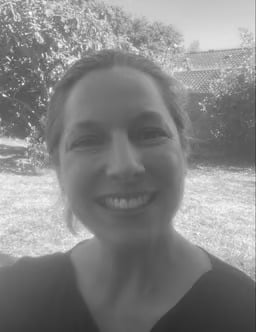Redox Reactions (Oxford AQA IGCSE Chemistry)
Revision Note

Author
Philippa PlattExpertise
Chemistry
Redox Reactions
When oxidation and reduction are happening at the same time this is known as a redox reaction
For example
zinc + copper sulphate → zinc sulphate + copper
Zn + CuSO4 → ZnSO4 + Cu
The ions present (with state symbols) in the equation are:
Zn (s) + Cu2+ (aq) + SO42- (aq) →Zn2+ (aq) + SO42- (aq) + Cu (s)
The spectator ions (those that do not change) are SO42-(aq) and are removed
Zn(s) + Cu2+(aq) → Zn2+(aq) + Cu(s)
We can split the reaction into two half equations
Zn (s) → Zn2+ (aq) + 2e-
Cu2+ (aq) + 2e- → Cu (s)
Zinc has been oxidised as it has lost electrons
Copper ions have been reduced as they have gained electrons
Worked Example
When iron reacts with bromine to form iron(II) bromide, a redox reaction reaction occurs:
Fe + Br2 → FeBr2
What has been reduced in the reaction?
Answer:
Step 1 - Write half equations to work out what has gained/lost electrons
Fe → Fe2+ + 2e-
Br2 + 2e- → 2Br-
Fe loses electrons; Br2 gains electrons
Step 2 - Deduce what has been oxidised/reduced (remember OIL RIG)
Fe has been oxidised as it has lost electrons
Br2 has been reduced as it has gained electrons
Worked Example
Which change in the following equation is oxidation?
V3+ + Fe3+ → V4+ + Fe2+
Answer:
Step 1
Identify the changes for each species
V3+ to V4+
V3+ has lost 1 electron
Fe3+ to Fe2+
Fe3+ has gained 1 electron
Step 2
Identify each change as either oxidation and reduction
V3+ to V4+ is oxidation
Fe3+ to Fe2+ is reduction
Therefore V3+ has been oxidised

You've read 0 of your 0 free revision notes
Get unlimited access
to absolutely everything:
- Downloadable PDFs
- Unlimited Revision Notes
- Topic Questions
- Past Papers
- Model Answers
- Videos (Maths and Science)
Did this page help you?